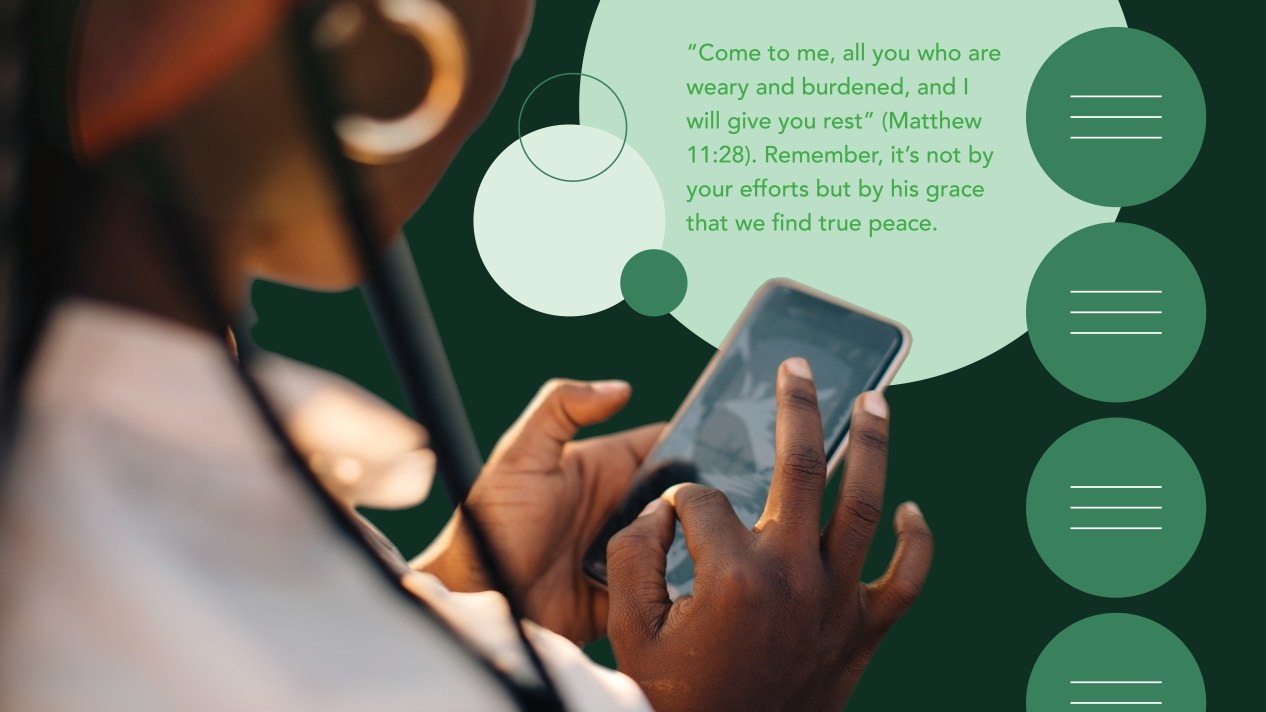Have you ever been in the middle of a conversation and found yourself searching for that elusive word that perfectly describes what you’re feeling? You know the word exists—so you stammer around it, circling closer and closer, until one of three things happens: you land on the word, the person you’re talking to suggests the word, or you finally give up, settling for an imperfect descriptor.
Those first two possibilities—in which you find the word you’re looking for, or someone is able to provide it for you—embody both the church’s largest struggle and brightest hope right now.
“People have, more than ever, language for what’s happening in the interior of their lives,” said David Kinnaman, president of Barna Group, at the October 5, 2021, State of Dallas-Fort Worth event, one of four forums discussing COVID-19’s impact on the United States. Kinnaman went on to share that while millennials and younger generations are often labeled as narcissistic or entitled, they are often the ones leading conversations around mental health issues faced by large percentages of the population.
There’s a tremendous opportunity for the church to engage in meaningful conversations about mental and emotional health, Kinnaman argues, and millennials are already at the helm. Their willingness to discuss these topics and share their experiences—in a major departure from the behavior of previous generations—opens an important door. By pinpointing language that identifies their struggles and needs, they’re helping others find their own missing words, aiding those who struggle to label mental and emotional needs they’ve never had to name before.
According to Barna, 45 percent of adults in the United States say they feel lonely, while 46 percent say they feel depressed. Half of all US adults identify as “burned out,” and 51 percent say they feel anxious. Topping the charts at a staggering 61 percent, the majority of adults in the United States say that feelings of stress are commonplace.
What are pastors to do? The thought of 250 people in a 500-person church feeling burned out, anxious, and stressed—if not depressed, fearful, and grieving—is, to put it mildly, overwhelming. But many church leaders are more equipped than they realize to cultivate a church culture that meets people in their emotional pain.
In Barna’s latest findings, churches that are flourishing have created safe havens where needs are named and struggles that have long gone unspoken are finally being voiced. Pastors who use statements like “I know some of you are feeling anxious” or “some of us are struggling with depression” in sermons or emails are making a massive, positive impact on congregants who feel alone or ashamed of their emotional state.
As pastors speak of the compassion and tenderness of God toward those who are hurting, and as they specify pain with words that provide a new and better vocabulary for people’s experiences, they create a safe community environment. Many congregants find comfort in a church leader who is unafraid of hunting for the right word, even if it’s the hardest to say.
Tender Transformation
For decades, the evangelical ministry model has been focused largely on conversions. Pastors and church leaders feel motivated to preach the gospel to those without Christ—and it’s true that many have come to see and know the goodness of Jesus through preaching, proselytizing, and programs. But in a time when many feel emotionally parched, the taste of a pour from an old wineskin can leave a sour taste.
Instead of focusing on high numbers or large-scale events to measure success, strategic pastors are prioritizing where people already are, such as homes, schools, and workplaces. These smaller, more intimate venues provide the safety people need to stumble around until they find words to describe the current state of their minds and hearts. And these smaller-scale interactions give leaders the time and opportunity for individual intentionality that leads to speaking words of life, rather than a generalized message that, no matter how well intentioned, may cause harm.
These days, many find themselves in a difficult season of marriage, exhausted from pandemic parenting, or vocationally dissatisfied. Churches are making a critical difference by dedicating attention to those who need to share what has broken their hearts or weighed heavily on their minds. Pastors can cultivate trust with congregants who need a sounding board and a shepherd by drawing from the well of God’s compassion detailed in Scripture and utilizing the language of mental health in sermons and broad communications.
Pastor, You Already Have the Tools
While meeting the growing needs of a congregation can certainly feel overwhelming in this season, church leaders should be encouraged. Serving people well does not always require a new set of tools. Instead, for many, it can mean leveraging what you already know, what years of biblical studies, relationships, and your own therapy has taught you. As a pastor, you excel when you’re fulfilling your most basic calling: to make disciples. And that same call is leading to transformative change when you are committed to creating a common vocabulary around mental health.
What might this look like, practically speaking? Pastors who are leading in this way recommend approaches that emphasize God’s care for the needs of the individual rather than frameworks that focus on conquering fear or combatting anxiety. Instead of simply telling people not to worry, these pastors remind their congregation that the body of Christ within their local congregation is here to embrace and uphold them in their time of need.
While two-thirds of churchgoers say they would turn to their pastor in a time of need, only a quarter believe that their fellow congregants are equipped to support them emotionally. As pastors demonstrate compassionate care, they aren’t just meeting the needs of a given individual in crisis. Rather, when they draw from biblical truths like “the Lord draws near to the brokenhearted,” pastors empower their people to care well for one another. Effective shepherding illuminates the way of life that God invites all of his people to embrace. By diligently digging for helpful words and speaking them in timely, tender ways, pastors are making disciples who do the same.
A New Kind of Light in the World
A gentle approach to tender transformation not only serves as a strong foundation for holistic congregational discipleship, it rolls out the welcome mat for those who have yet to meet Jesus. While 63 percent of US adults believe that local churches care for their well-being, that number drops to less than half among the unchurched.
This reality presents pastors with an opportunity to both offer and communicate whole-life care to their neighbors. Pastors are realizing that this may not be the moment for their biggest evangelistic effort, but it is the moment for identifying and meeting the needs of others, speaking compassionately, and building trust.
By listening without judgment, asking kind-hearted, open-ended questions, and acknowledging the imperfections and inconsistencies of your own perspective, pastors can build rapport with non-churchgoers and lead congregants to do the same. Being the light of the world doesn’t always mean serving as a flashlight that exposes someone’s flaws or a strobe light that entrances them with entertainment. Much more often, the light of the world is a flickering candle, providing warmth and comfort to others.
Through your example of leadership, your church can demonstrate what it looks like to love one another through arms around shoulders, time spent listening, and words of life. You are equipped for this, pastor. You know the Scriptures. You love your congregation. You have a book on your shelf or a phone in your hand that can help you expand your vocabulary for describing, as Kinnaman puts it, the complexities of our inner life. And even when your knowledge feels incomplete, your patience for your people stretches thin, or you can’t bring yourself to dive into another resource, all is not lost.
The words of life that you speak to others have also been given to you. God looks on you with tenderness, attuned to your own feelings of grief, loss, burnout, or loneliness. Take comfort in his inexhaustible love, trusting that he will supply your every need as he speaks compassion over you, equipping you to do the same.
Posted


